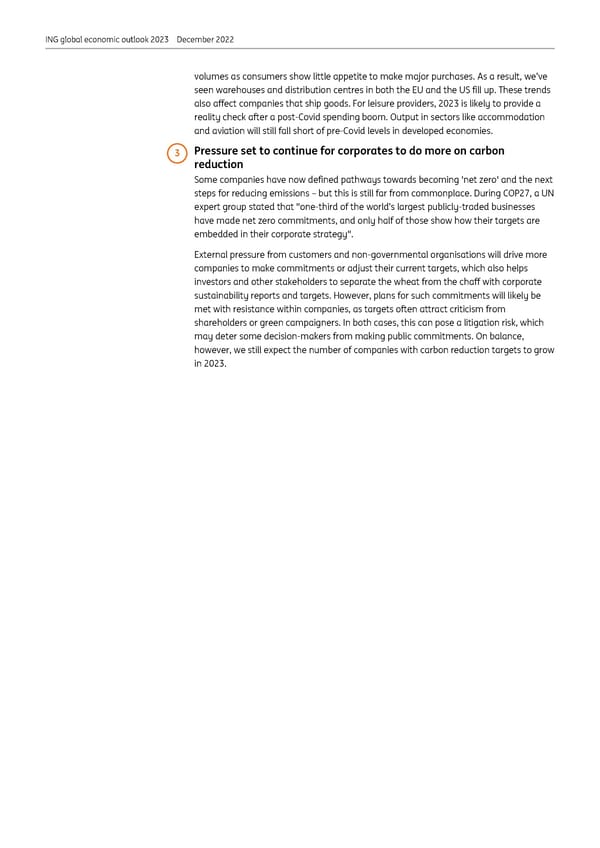ING global economic outlook 2023 December 2022 volumes as consumers show little appetite to make major purchases. As a result, we’ve seen warehouses and distribution centres in both the EU and the US fill up. These trends also affect companies that ship goods. For leisure providers, 2023 is likely to provide a reality check after a post-Covid spending boom. Output in sectors like accommodation and aviation will still fall short of pre-Covid levels in developed economies. 3 Pressure set to continue for corporates to do more on carbon reduction Some companies have now defined pathways towards becoming 'net zero' and the next steps for reducing emissions – but this is still far from commonplace. During COP27, a UN expert group stated that "one-third of the world’s largest publicly-traded businesses have made net zero commitments, and only half of those show how their targets are embedded in their corporate strategy". External pressure from customers and non-governmental organisations will drive more companies to make commitments or adjust their current targets, which also helps investors and other stakeholders to separate the wheat from the chaff with corporate sustainability reports and targets. However, plans for such commitments will likely be met with resistance within companies, as targets often attract criticism from shareholders or green campaigners. In both cases, this can pose a litigation risk, which may deter some decision-makers from making public commitments. On balance, however, we still expect the number of companies with carbon reduction targets to grow in 2023.
 ING Global Economic Outlook 2023 Page 19 Page 21
ING Global Economic Outlook 2023 Page 19 Page 21